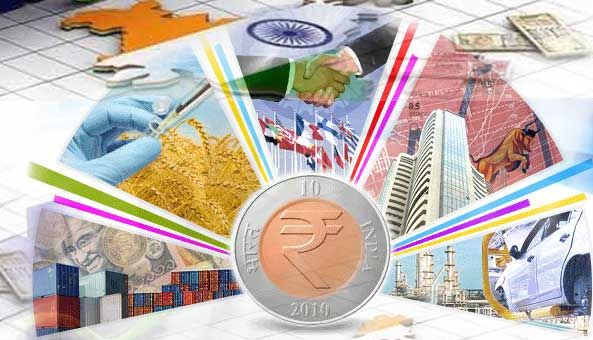Gdp: The Growth Indicator
Jun 24, 2019 • 33 views

Like a thermometer, GDP is one of the instruments used to gauge the health of a nation.
What is GDP?
GDP stands for Gross Domestic Product. It measures the market value of all final goods & services produced in an economy during an accounting year, usually one year. Usually, it is expressed as comparison over the past year or quarter. GDP is generally calculated by a government statistical agency within a country as the private sector does not have access to the required information.
GDP is regarded as the "world's most powerful statistical indicator of national progress & development".
History
The idea was conceptualized by William Petty to attack landlords against unfair taxation during warfare in 1654-1676. Further, in 1695 Charles Davenant developed a method.
Today's concept was given by Simon Kuznets in 1934. GDP emerged as a major tool for measuring development in an economy after the Bretton Woods conference in 1944.
Approach to Calculate GDP
GDP can be calculated by using three different approaches, all of which will yield the same result, irrespective of the method.
The 3 ways to calculate GDP are as follows:
Production or Output Method: In this method, the value of intermediate consumption is subtracted from the gross value of output. It is done to consider only the final value of goods & services sold to the ultimate consumers.
Income Method: This method takes into account the income of all factors of production like rent, wages of labour & interest rate. This is basically the distribution of total income generated among factors of production.
Expenditure Method: It considers the value of final goods & services like consumption, investment, government expenditure & net exports.
GDP enables policymakers and central banks to determine which policy will be effective on the basis of whether the economy is in recession or inflation or whether it needs a boost or restraint.
It is also useful for shareholders to predict the future condition of the stock market. Thus, GDP helps in important economic decision-making which otherwise would be difficult to frame.
Shortcomings of GDP
GDP is not a true indicator of development in a nation.
GDP doesn't consider the quality of goods and services. Say, for example, if due to pollution the standard of living of the people is affected, GDP won't consider that. Or if due to the construction of the highway, some are benefitted, it wouldn't be taken into consideration. Thus, both positive and negative externalities are neglected.
The service provided by housewives is not taken as they are not paid for it. Any illegal work having no records is also not included in the calculation. Thus, it generates the possibility of inaccurate data. The income inequality i.e. widening gap & parity between rich & poor is not reflected in GDP, thereby, not revealing the structure or composition of the society.
Thus, GDP can't be considered as an ideal way to measure the development of the economy but still, it's widely used. The economists are working on alternatives but till then, it is the best indicator of overall growth.
